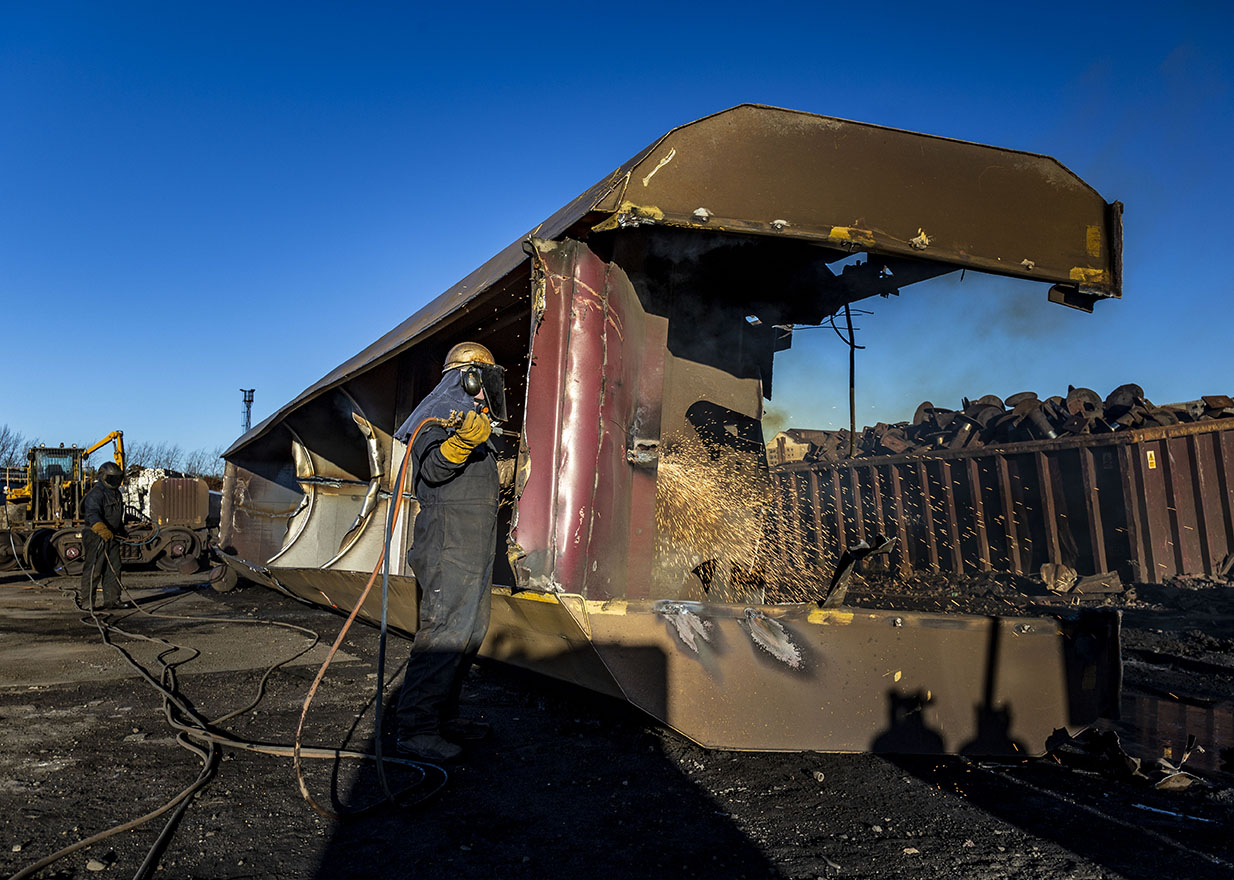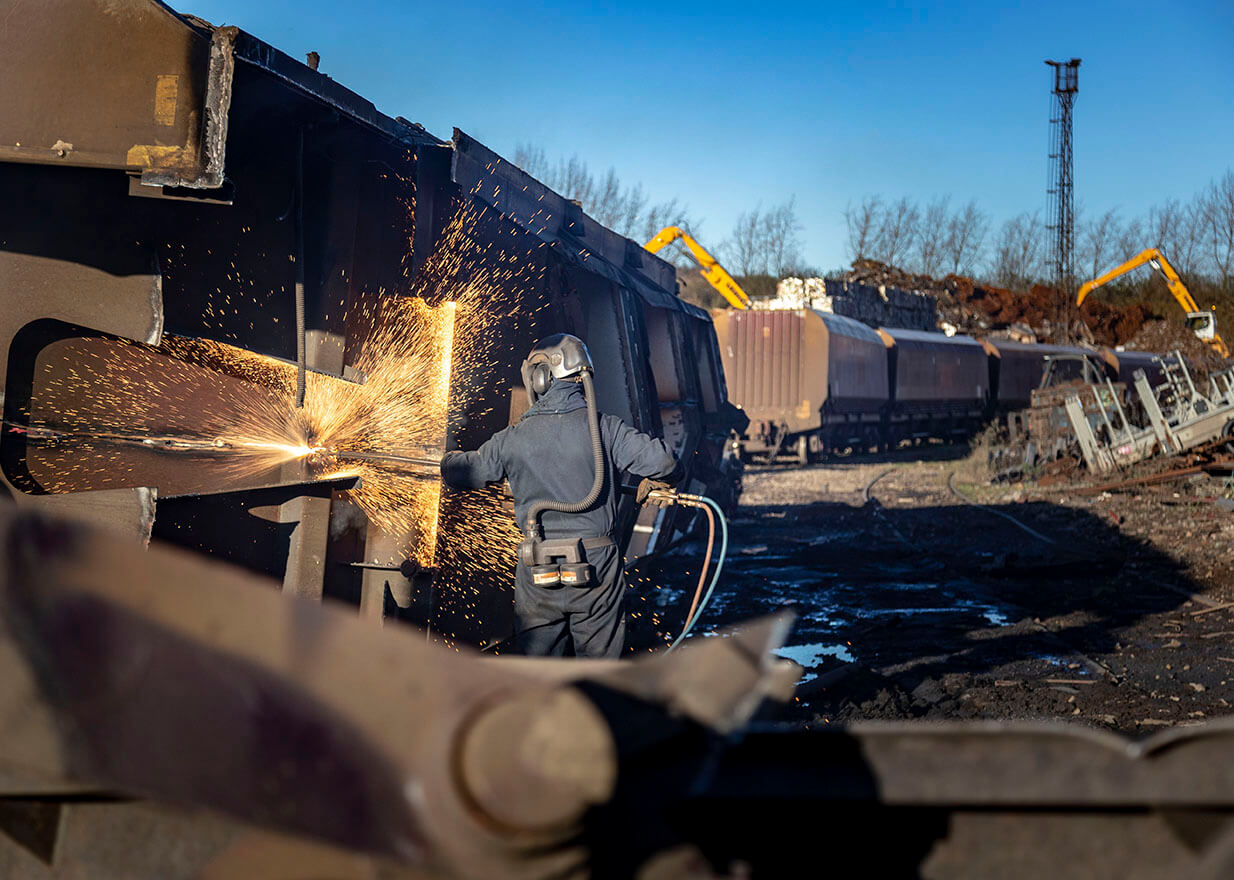CHOOSE
A DIFFERENT TERRITORY

As a world-leading metal recycler, EMR prides itself that no job is too big or too small. This means our sites must be ready to support the operators of some of the transport industry’s biggest end-of-life vehicles.
“Among the larger and most interesting items that arrive in our depots are end-of-life trains and rail infrastructure. This can mean anything from passenger or freight carriages to tracks and cabling,” says Simon Gunn, General Manager at EMR. “We also recycle the locomotives themselves, but these machines are often in service for decades and then sent to other countries or heritage lines to continue their life cycle.”
Trains, carriages and tracks all provide a rich source of both ferrous and non-ferrous metal. Carriages, for example, are predominantly built from steel and can contain quantities of aluminium and stainless steel, as well as wiring, motors and transformers.
Large and complex projects, such as processing an end-of-life train, require both well-trained teams and specialist equipment.
EMR’s flagship facility for recycling trains is its Kingsbury depot, near Tamworth, with Liverpool, Sheffield and other large sites also able to process trains when needed.
“Over the years, we have worked hard to make sure our recycling service is safe, efficient and convenient for rail operators,” Simon says. “Those sites where we process carriages or engines can all be accessed by rail and road and have enough space for them to be moved and turned around. We have the correct, specialist lifting gear in place too.”

EMR’s Kingsbury site features a larger weighbridge to enable the team there to process any particular heavy or awkwardly-shaped items. It highlights how EMR invests in its infrastructure to ensure it is a flexible, efficient, and reliable partner to every customer, rail operators included.
“EMR teams can even go to these customers’ sites to decommission carriages, where required,” Simon adds. “Unlike a lot of jobs that we do, our teams will also be requested to retain certain components such as seats, wheels or doors and windows so that operators can re-use them.”
By meeting these needs, EMR is helping the rail industry keep its rolling stock in operation for longer and playing a direct role in the circular economy.
Understandably, Simon says EMR is well placed to cater for end-of-life trains as the UK and other markets seek continual improvement of their rail networks:
“Over the next few years there’s quite a lot of train infrastructure that’s due to be replaced as operators upgrade. Thanks to our experience, service and track record as a responsible recycler, I’m confident that EMR will be the company of choice for many of these businesses.”